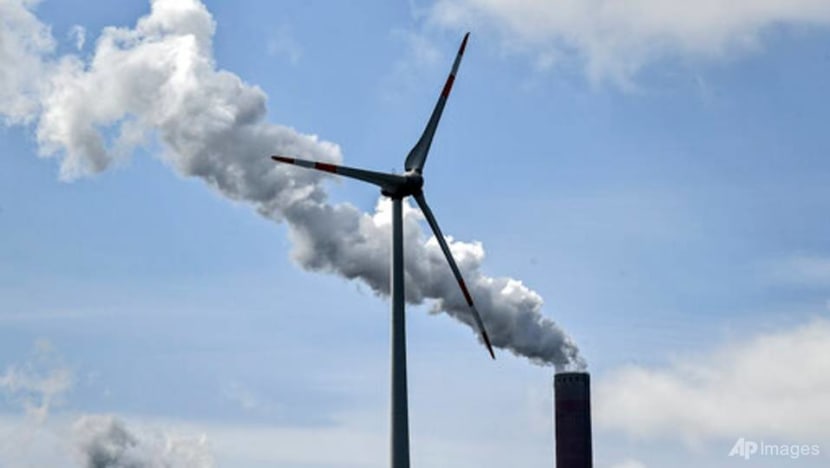Germany, China to increase cooperation on climate change

A chimney of a coal-fired power plant smokes beside a wind turbine in Gelsenkirchen, Germany, on Apr 22, 2021. (Photo: AP/Martin Meissner)
BERLIN: Germany and China agreed on Monday (Apr 26) to step up their cooperation in combating climate change in an effort to help keep global temperatures from rising by more than 1.5 degrees Celsius by the year 2100.
Countries are running out of time to achieve that target, laid down in the Paris agreement more than five years ago, because global temperatures have already increased by about 1.2 degrees Celsius since pre-industrial times, scientists say.
“We need to do everything possible to lower greenhouse gas emissions faster than planned so far,” said Svenja Schulze, Germany's environment minister. “Along with the big industrialised countries we also need China for this.”
China has become the world's largest emitter of planet-heating gases, overtaking the United States, which now ranks second. It has pledged to stop adding carbon dioxide, the main greenhouse gas, to the atmosphere by 2060 - a decade later than the US and the European Union.
The agreement comes ahead of the two countries' Cabinets holding a bilateral meeting Wednesday.
Schulze said she and her Chinese counterpart Huang Runqui discussed how Beijing can bring forward the year when it will start reducing emissions and cuts its use of coal, a particularly polluting fossil fuel. Germany aims to phase out the burning of coal for electricity by 2038.
On Monday, three German environmental think tanks said the country could bring forward its target for going “climate neutral” forward five years if it stopped the use of coal by 2030, significantly increased renewable energy generation, replaced natural gas with hydrogen by 2040 and banned the registration of combustion engine vehicles from 2032.
Together, the measures could help Germany save almost 1 billion tonnes of carbon dioxide, they said.
The plan received support from the environmentalist Greens, who are leading in the latest polls five months before Germany's federal election. Annalena Baerbock, the party's candidate to succeed Chancellor Angela Merkel, said the proposal showed that “reshaping German industry with an ambitious climate goal is more than feasible".










